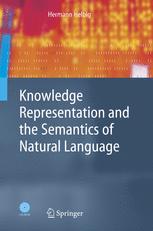

Most ebook files are in PDF format, so you can easily read them using various software such as Foxit Reader or directly on the Google Chrome browser.
Some ebook files are released by publishers in other formats such as .awz, .mobi, .epub, .fb2, etc. You may need to install specific software to read these formats on mobile/PC, such as Calibre.
Please read the tutorial at this link: https://ebookbell.com/faq
We offer FREE conversion to the popular formats you request; however, this may take some time. Therefore, right after payment, please email us, and we will try to provide the service as quickly as possible.
For some exceptional file formats or broken links (if any), please refrain from opening any disputes. Instead, email us first, and we will try to assist within a maximum of 6 hours.
EbookBell Team

4.8
64 reviewsNatural Language is not only the most important means of communication between human beings, it is also used over historical periods for the pres- vation of cultural achievements and their transmission from one generation to the other. During the last few decades, the ?ood of digitalized information has been growing tremendously. This tendency will continue with the globali- tion of information societies and with the growing importance of national and international computer networks. This is one reason why the theoretical und- standing and the automated treatment of communication processes based on natural language have such a decisive social and economic impact. In this c- text, the semantic representation of knowledge originally formulated in natural language plays a central part, because it connects all components of natural language processing systems, be they the automatic understanding of natural language (analysis), the rational reasoning over knowledge bases, or the g- eration of natural language expressions from formal representations. This book presents a method for the semantic representation of natural l- guage expressions (texts, sentences, phrases, etc. ) which can be used as a u- versal knowledge representation paradigm in the human sciences, like lingu- tics, cognitive psychology, or philosophy of language, as well as in com- tational linguistics and in arti?cial intelligence. It is also an attempt to close the gap between these disciplines, which to a large extent are still working separately.